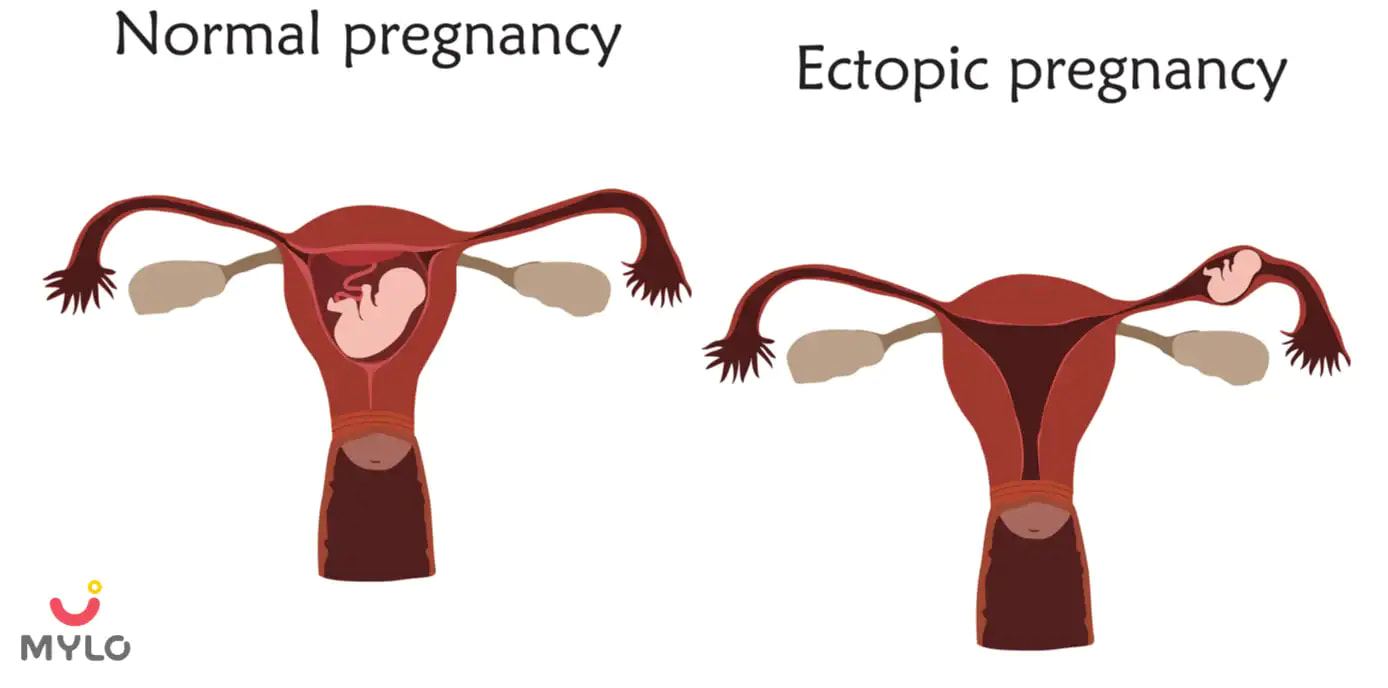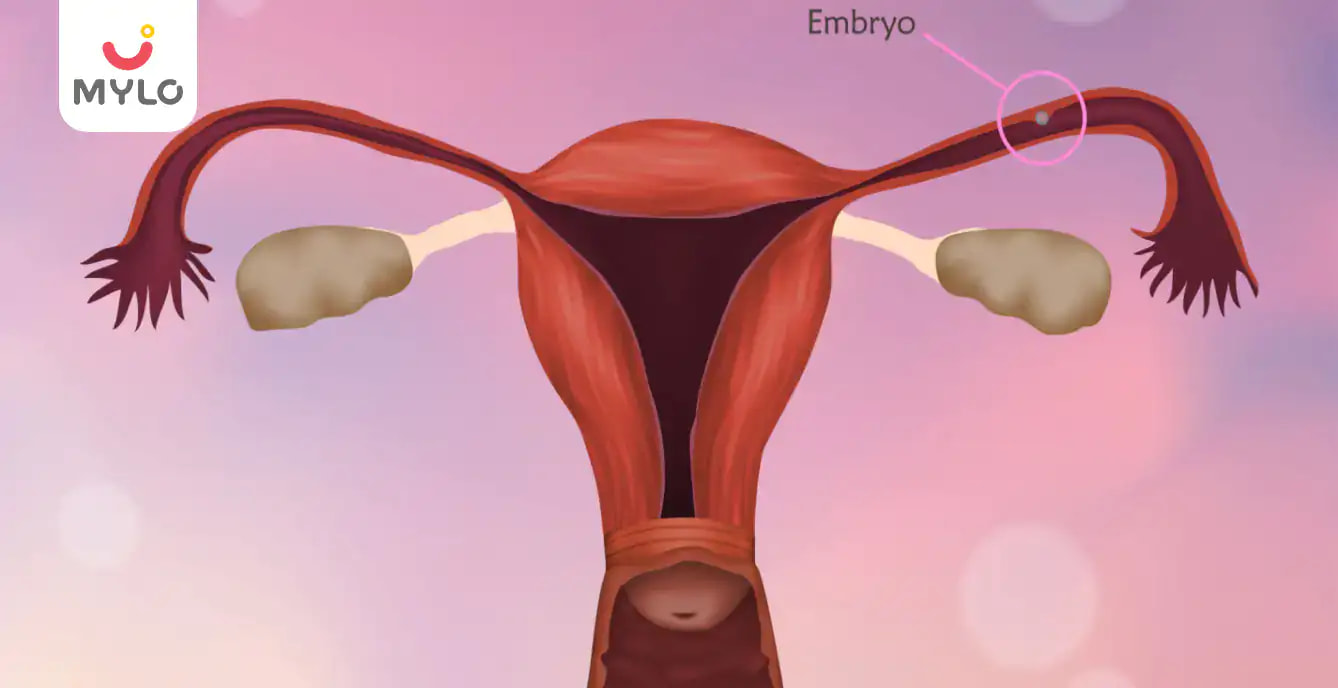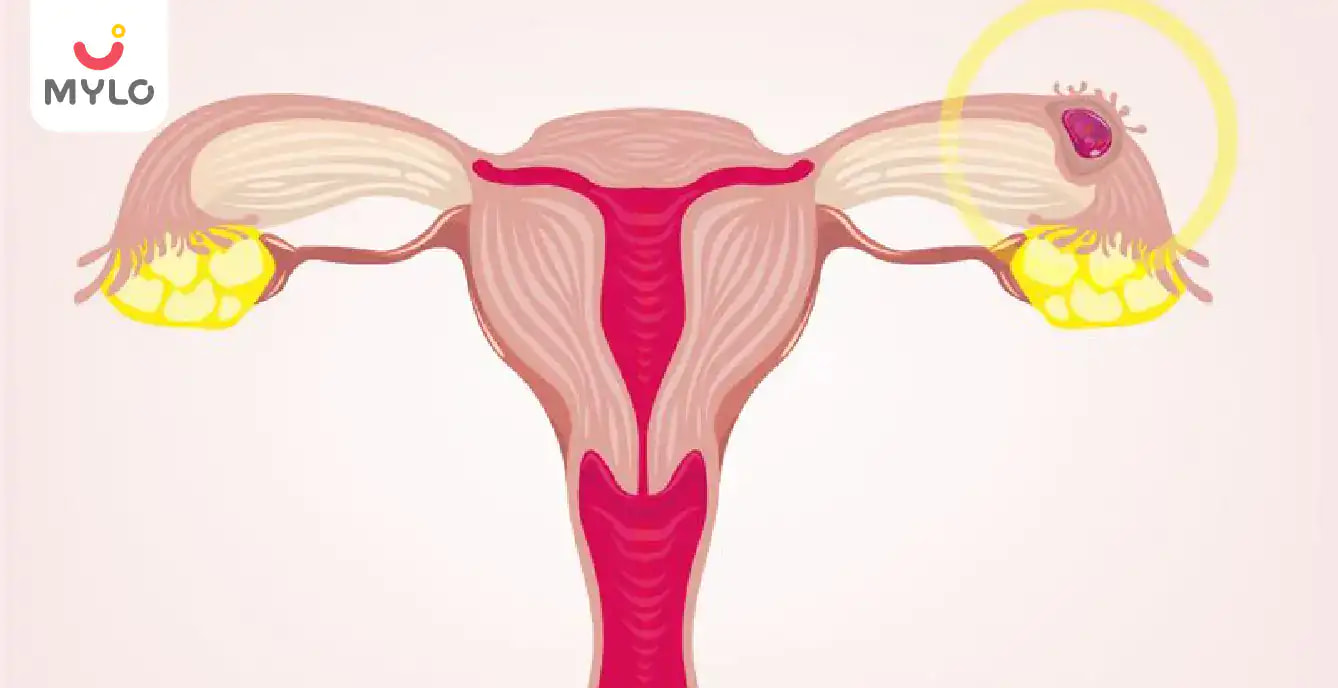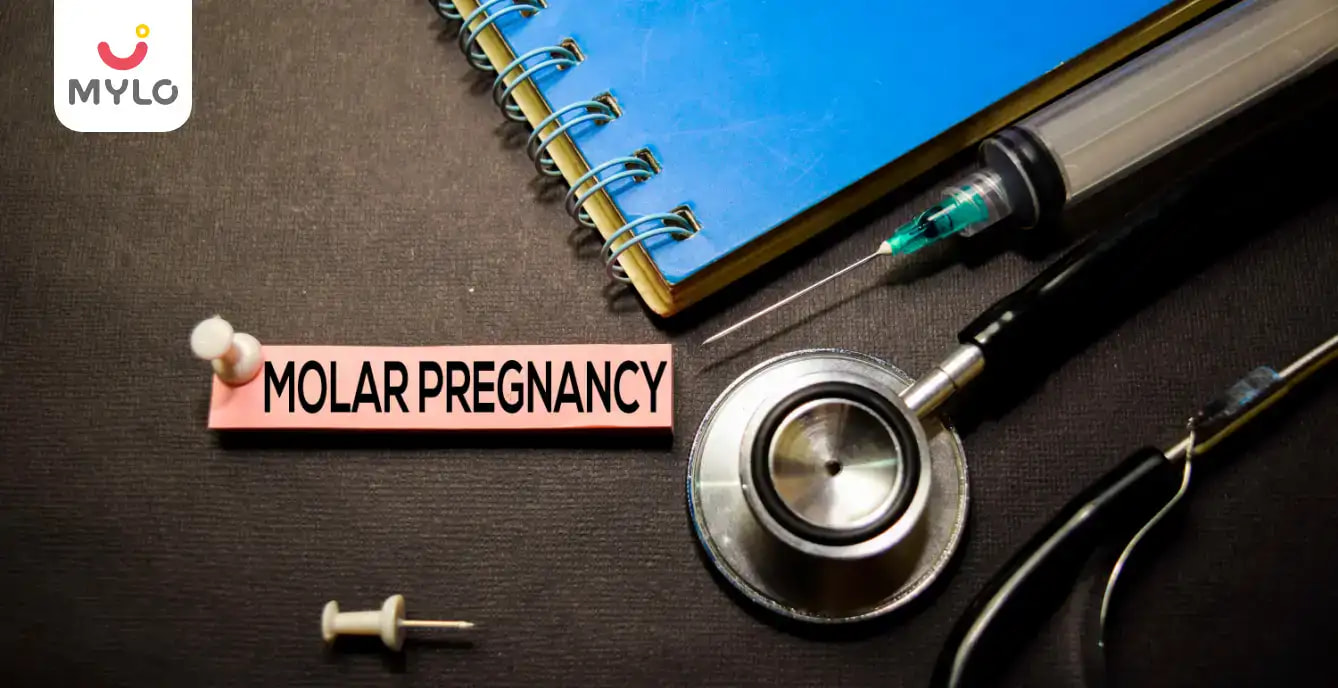Home

Pregnancy Complications

What is Ectopic Pregnancy - Symptoms, Causes, Treatment, Prevention & How to Detect it?
In this Article

Pregnancy Complications
What is Ectopic Pregnancy - Symptoms, Causes, Treatment, Prevention & How to Detect it?
Updated on 3 November 2023
What we know about ectopic pregnancy, its causes, symptoms, and how it can be detected, as well as its side effects and their management for better treatment.
What is Ectopic Pregnancy?
Ectopic Pregnancy is referred to as the implantation of the embryo at a site other than the uterus. This occurs when the fertilized egg is implanted outside the womb. Mostly, it attaches to the fallopian tube; in a few cases, pregnancy occurs in the ovary, cervix, or the abdominal cavity. This is a life-threatening condition. This kind of pregnancy is not a normal pregnancy that can be carried out till birth, and it can be harmful to the mother if not terminated immediately.
When Does Ectopic Pregnancy Pain Start?
Often, the pain starts if you have a ruptured fallopian tube. Symptoms are light vaginal bleeding and pelvic pain. If the fallopian tube ruptures and there is heavy bleeding, then there is a need for surgery. The ruptured Fallopian tube and other residues of the pregnancy are then surgically removed.
Ectopic Pregnancy Symptoms
The following are a few signs and symptoms of ectopic pregnancy that need immediate medical attention:
- pain in the abdomen (lower pelvis area)
- dizziness
- Collapsing or fainting
- vaginal bleeding
- Sharp pain in the abdomen,
- Pain in shoulder, pelvis, or neck
- Pressure in the rectum
Ectopic Pregnancy Causes
There is no clarity on the cause of an ectopic pregnancy. Here are some conditions that have been related to an ectopic pregnancy:
- Injury or inflammation of the fallopian tubes due to previous surgery or infection
- hormonal factors
- age is above 35 years
- had trouble getting pregnant or have had fertility treatment
- Using reproductive methods to get pregnant, such as in vitro fertilization (IVF)
- endometriosis
- had an ectopic pregnancy in the past.
How To Detect Ectopic Pregnancy Early?
A pelvic exam (ultrasound) and blood test can help your doctor to detect early ectopic pregnancy.
Pregnancy test
A pregnancy test is performed to check the levels of human chorionic gonadotropin (HCG) hormones, which will confirm that you are pregnant. The hormones levels are high during pregnancy. This test is frequently done for a couple of days until an ultrasound can confirm, or the ectopic pregnancy is ruled out. This test is done in about five to six weeks of conception.
Transvaginal ultrasound
A transvaginal ultrasound allows your doctor to see the lower abdomen and locate the implanted embryo and determine whether it is inside or outside the uterus.
Abdominal ultrasound
To confirm your pregnancy or evaluate for internal bleeding.
How Early Can Ectopic Pregnancy Be Detected by Ultrasound?
Ectopic pregnancy is typically detected early stages of pregnancy. Most cases are found within the first trimester. It is usually discovered in the eighth week of pregnancy.
Treatment for Ectopic Pregnancy
There are several ways that an ectopic pregnancy can be treated.
Medication: In some cases, your healthcare provider will advise you to take methotrexate to stop or slow down the growth of the foetus. This will terminate your pregnancy. Methotrexate is given as an injection. This option is less invasive than surgery, but follow-up appointments are needed with your healthcare provider where your hCG levels will be monitored.
Ectopic Pregnancy Surgery (Laparoscopy): In severe cases, surgery is mandatory. Laparoscopic surgeries are performed to treat some ectopic pregnancies. In this procedure, an incision is made in the abdomen, near or in the navel and a thin tube like equipment with a camera lens and light is inserted to view the tubal area.
Depending on the amount of damage and bleeding and whether the tube has ruptured, the procedure is performed.
Laparotomy: If the surgery did not go well, the surgeon may undergo a laparotomy, in this procedure a larger incision is made. The fallopian tube is removed during surgery if it is damaged.
Whether you are treated with medicine or surgery, your doctor will want to see you regularly. Your doctor will monitor your hCG levels to make sure they go back to normal. This can take several weeks.
Side Effects After Ectopic Pregnancy Surgery
After the surgery, you may experience mild to severe side effects. Your health care professional will talk to you about the possible side effects of surgery for ectopic pregnancy. These may include pain, fatigue, bleeding, and infection. You may feel tired for a few weeks while you recover. You may experience abdominal discomfort or pain. If your pain is not responding to over-the-counter medication, talk to your ob-gyn or your health care professional.
Management of Ectopic Pregnancy
- Regular monitoring of hCG levels is done, and this test is frequently performed a few times unless there are no traces of the hormones.
- Additional treatment is required if the hormone level does not decrease or increase.
- Use of a sanitary pad is advisable in case you experience some vaginal bleeding.
- Take paracetamol in case you experience stomach pain.
- The doctor will take care of any serious symptoms if they emerge.
Medical Management of Ectopic Pregnancy
Medical management of ectopic pregnancies has options of avoiding the need for surgery. Mostly, methotrexate is given, often in the form of an injection. It kills the cells growing in the Fallopian tube. It is normally advised if the pregnancy is very early. Here you have the advantage of avoiding the surgery. You will have to be monitored closely with repeated blood tests and scans over several weeks to ensure that they are working well. You will need to have a blood test for hCG every 2-3 days until your levels are low. In some women,
Methotrexate can cause side effects, which include the feeling of nausea and vomiting. After taking methotrexate for 3-7 days, you may experience abdominal pain.
How To Prevent Ectopic Pregnancy?
An ectopic pregnancy cannot be prevented. You can always try to reduce the risk factors by following a good lifestyle. These can include not smoking, maintaining a healthy weight and diet, and preventing any sexually transmitted infections (STIs). Talk to your healthcare provider about any risk factors you may have before trying to become pregnant.
References
1. Madu AE and Guirguis M; (2014). Ectopic Pregnancy and Tubal Abortion; Nepal Journal of Obstetrics and Gynaecology
2. Vanitha N Sivalingam et al.; Diagnosis and management of ectopic pregnancy. www.ncbi.nlm.nih.gov



Written by
Priyanka Verma
Priyanka is an experienced editor & content writer with great attention to detail. Mother to an 11-year-old, she's a ski
Read MoreGet baby's diet chart, and growth tips

Related Articles
Related Questions
Hello frnds..still no pain...doctor said head fix nhi hua hai..bt vagina me pain hai aur back pain bhi... anyone having same issues??

Kon kon c chije aisi hai jo pregnancy mei gas acidity jalan karti hain... Koi btayega plz bcz mujhe aksar khane ke baad hi samagh aata hai ki is chij se gas acidity jalan ho gyi hai. Please share your knowledge

I am 13 week pregnancy. Anyone having Storione-xt tablet. It better to have morning or night ???

Hlo to be moms....i hv a query...in my 9.5 wk i feel body joint pain like in ankle, knee, wrist, shoulder, toes....pain intensity is high...i cnt sleep....what should i do pls help....cn i cosult my doc.

Influenza and boostrix injection kisiko laga hai kya 8 month pregnancy me and q lagta hai ye plz reply me

Related Topics
RECENTLY PUBLISHED ARTICLES
our most recent articles

Diet & Nutrition
গর্ভাবস্থায় আলুবোখরা: উপকারিতা ও ঝুঁকি | Prunes During Pregnancy: Benefits & Risks in Bengali

Diet & Nutrition
গর্ভাবস্থায় হিং | ঝুঁকি, সুবিধা এবং অন্যান্য চিকিৎসা | Hing During Pregnancy | Risks, Benefits & Other Treatments in Bengali

Women Specific Issues
স্তনের উপর সাদা দাগ: লক্ষণ, কারণ এবং চিকিৎসা | White Spots on Nipple: Causes, Symptoms, and Treatments in Bengali

Diet & Nutrition
গর্ভাবস্থায় পোহা: উপকারিতা, ধরণ এবং রেসিপি | Poha During Pregnancy: Benefits, Types & Recipes in Bengali

Diet & Nutrition
গর্ভাবস্থায় মাছ: উপকারিতা এবং ঝুঁকি | Fish In Pregnancy: Benefits and Risks in Bengali

Diet & Nutrition
গর্ভাবস্থায় রেড ওয়াইন: পার্শ্ব প্রতিক্রিয়া এবং নির্দেশিকা | Red Wine During Pregnancy: Side Effects & Guidelines in Bengali
- ইনার থাই চ্যাফিং: কারণ, উপসর্গ এবং চিকিৎসা | Inner Thigh Chafing: Causes, Symptoms & Treatment in Bengali
- গর্ভাবস্থায় ব্রাউন রাইস: উপকারিতা ও সতর্কতা | Brown Rice During Pregnancy: Benefits & Precautions in Bengali
- Velamentous Cord Insertion - Precautions, Results & Safety
- Unlock the Secret to Flawless Skin: 7 Must-Have Qualities in a Face Serum
- Unlock the Secret to Radiant Skin: How Vitamin C Serum Can Transform Your Complexion
- Gender No Bar: 10 Reasons Why Everyone Needs a Body Lotion
- Unlock the Secret to Radiant Skin How to Choose the Perfect Body Lotion for Your Skin Type
- Top 10 Reasons to Apply a Body Lotion After Every Bath
- Communication in Toddlers: Milestones & Activities
- How to Improve Vocabulary for Toddlers?
- A Comprehensive Guide to Understanding Placenta Accreta
- Vulvovaginitis in Toddlers Causes, Symptoms and Treatment
- A Comprehensive Guide to Understanding Cerebral Palsy in Children
- Bitter Taste in Mouth During Pregnancy: Understanding the Causes and Remedies


AWARDS AND RECOGNITION

Mylo wins Forbes D2C Disruptor award

Mylo wins The Economic Times Promising Brands 2022
AS SEEN IN

- Mylo Care: Effective and science-backed personal care and wellness solutions for a joyful you.
- Mylo Baby: Science-backed, gentle and effective personal care & hygiene range for your little one.
- Mylo Community: Trusted and empathetic community of 10mn+ parents and experts.
Product Categories
baby carrier | baby soap | baby wipes | stretch marks cream | baby cream | baby shampoo | baby massage oil | baby hair oil | stretch marks oil | baby body wash | baby powder | baby lotion | diaper rash cream | newborn diapers | teether | baby kajal | baby diapers | cloth diapers |








